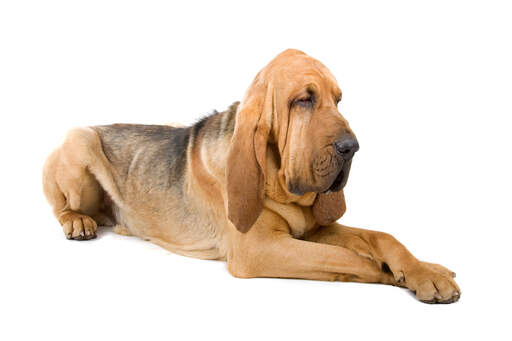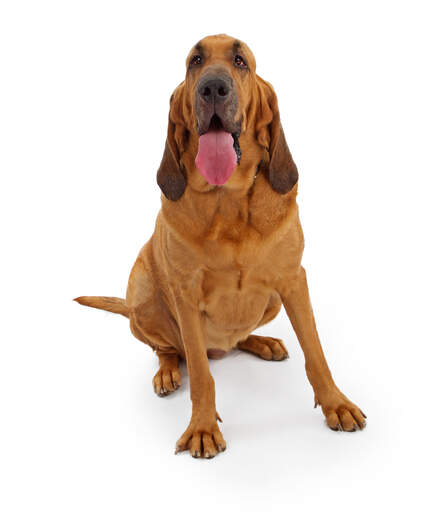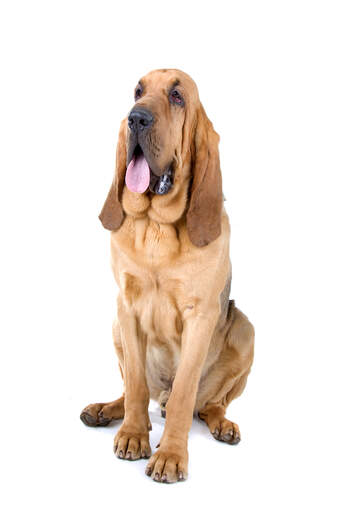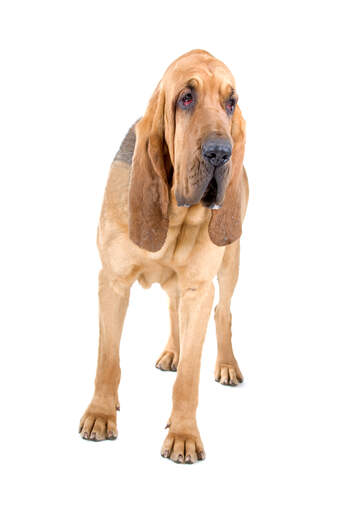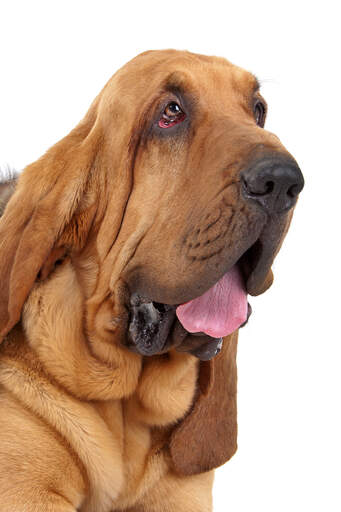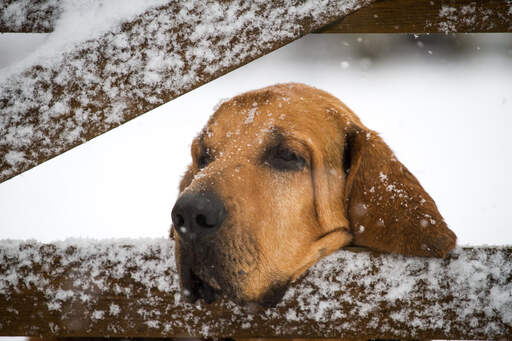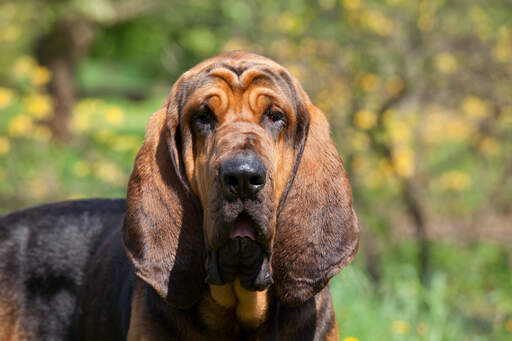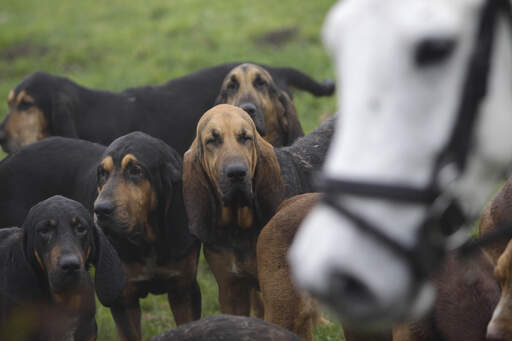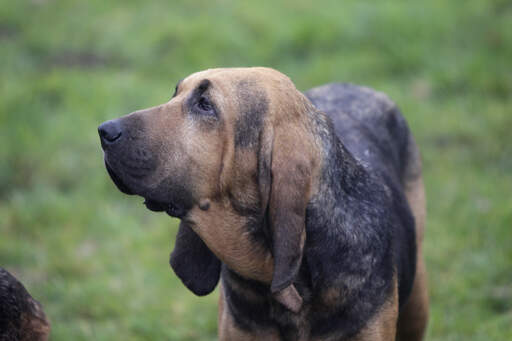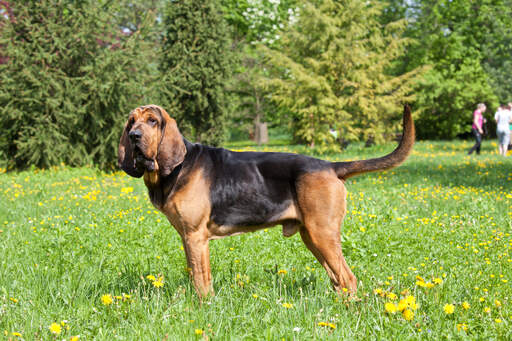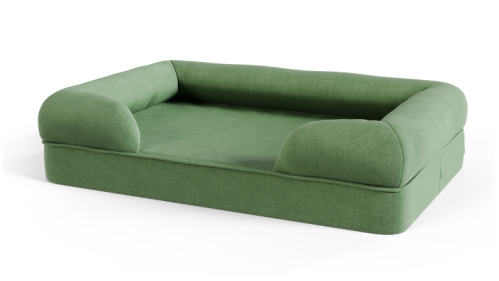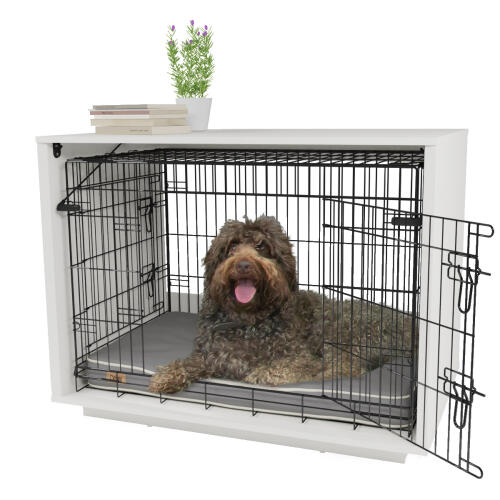Bloodhound Dogs










Breed Rating (1 Reviews)
| Appearance | |
| Friendliness | |
| Hardiness | |
| Garden |
History
Bloodhounds were well established in England in the 14th century, but their exact origins are unknown. It is believed that they date back to 1000AD and are descended by the hounds bred by Monks at the Saint -Hubert monastery in Belgium. The breed is most famous for its tracking ability and can pick up scents that are days old and over a very long distance.
Behaviour
Bloodhounds are septum born. They are affectionate pets and extremely loyal, but rarely do as they are told. Their extreme sense of smell means they will run off at a seconds notice and should only be walked on a lead. Recall is an alien concept to them and many believe that it isn't worth trying to teach them, as their instinct to track will overrule common sense. Once a scent is found, they are tireless and rarely give up on it. Walking to heel needs to be started from day one as they like to pull on the lead. Bloodhounds are happy within a family and make good pets. They are gentle with children, but need human company to stay content. They are usually ok with other dogs and strangers if I introduced from an early age. The breed is slow to mature, usually around 3 years old. They require a fair amount of daily exercise, either in a safe fenced area or a long walk on a lead. Bloodhounds tend to drool a lot, saturating everything with one head shake, but they do make a loving, placid, fun dog. They love cuddles and will return your affection with loyalty until the end.
Bloodhounds tend to suffer from bloat which can be very common with the breed. Due to its skin folds and characteristic droopy eyes, problems can also arise here. Their short coat needs minimal grooming.
Temperament
Bloodhounds have a stubborn yet gentle temperament. They can be tough to train but are calm and placid around the house. Having an extremely strong sense of smell it can be very difficult to recall them once they have sensed a trail often following their nose for miles.
They are tolerant of other dogs and children but may be reserved around strangers. This dog needs lots of exercise daily and will drool all over you and your furniture.
Health Problems
Health problems that may affect bloodhounds include canine hip dysplasia (CHD), elbow dysplasia and multiple eye problems.
It is also important to clean the bloodhounds skin folds and ears as these get dirty easily and can lead to skin or ear problems.
Breed Details
- Status: Common
- Life Expectancy: 9 - 11 years
- Weight: 33 - 50 kg
- Height: Male 25 - 28" Female 23 - 26"
- Rare: No
- Coat: Short
- Grooming Requirements: Once a week
- Town or Country: Country
- Minimum Home Size: Large House
- Minimum Garden Size: Large Garden
- Breed Type: Hound
- Size: Large
- Energy Level: High
- Exercise Required: Over 2 hours
Bloodhound Pictures
Latest Reviews For Bloodhound (1 of 1)
I have 2 Red Bloodhounds - Theresa,
My dogs are great. Calm, gentle with farm animals. They will bring me a live opposite, drop it and go on. They never killed another animal. They are trainable but since they are very sensitive, correct and train with love. They are 5 & 7 yrs old. Best dogs I've ever had. Ill definitely have more in the future. If you hate cleaning up drool, don't get a bloodhound.

